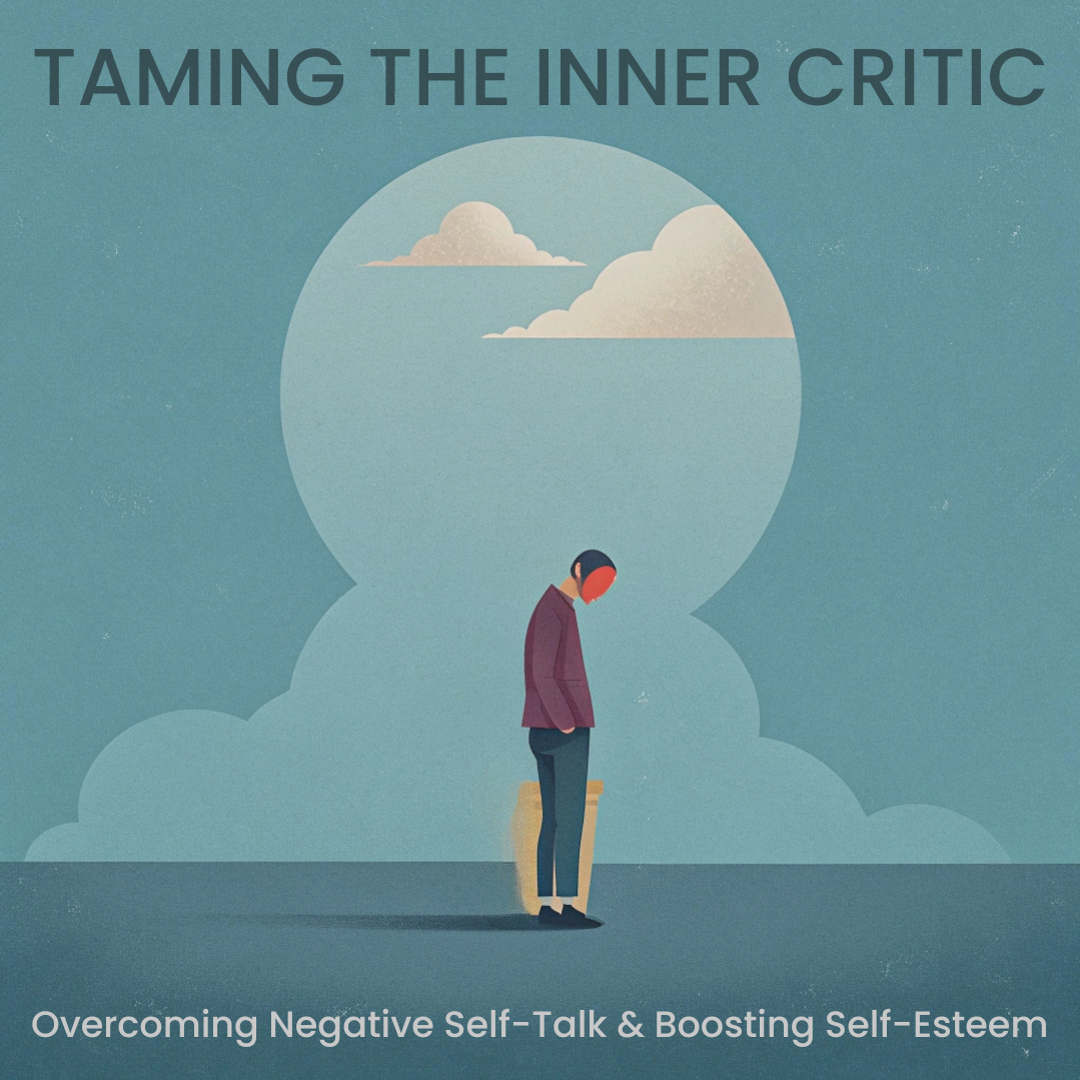Overview:
- Inner criticism is the voice that thrives on negativity and chips away your self confidence.
- It may be a consequence of an interplay of experiences, including childhood and societal expectations.
- The negative self-talk can be minimized using certain strategies. Cultivating those practices into everyday life can make a positive impact on a person’s self esteem.
Recognizing the Inner Critic
Sitting in the exam or a presentation and constantly thinking about how you’re going to fumble or flunk? The voice in your head that is constantly telling you that you reached a certain point by luck or “mistake.” This voice is chipping away your self confidence and thriving on negativity. This voice is none other than your inner critic. While we all have one, this constant criticism can hinder your personal growth and happiness.
The good news is that the inner critic can be tamed. By employing effective strategies, along with breaking the patterns can help cultivate a more positive outlook on life. Let’s explore how some strategies can help silence the voice and build more confidence.

How Does It All Begin?
The inner critic is often a result of complex experiences. It may also be rooted in childhood. In Cureus (2023), it was found that harsh parenting can impact a person’s self esteem. The individuals who face criticism from peers, teachers, or parents are more susceptible to negative self-talk.
As an individual grows up and recognizes societal expectations, they may develop different coping mechanisms, including negative self talk. Experiences like bullying, upholding beauty standards and comparing oneself to the social media icons may impact a person’s self esteem.
It is also not unheard of that as humans we are more prone to negative bias. This is because our brains are programmed to prioritize threats, akin to that of evolutionary theory. We’ve adapted to survival, i.e., being more in tune with negative feedback than anything positive. But this can significantly impact our self confidence.
How Does It Affect Us Anyway?
Constant pulling yourself down and creeping whispers can significantly impact your growth. Here’s how:
- It can lead to overthinking, which is backed by fear of failure. As a result, a lot of missed opportunities.
- An individual may develop feelings of inadequacy and incapability, leading to eroding self esteem.
- The inner critic may breed anxiety and depression.
- It affects all aspects of one’s life, including social life. A person may avoid interactions altogether or sabotage relationships.

Strategies to Tame the Inner Voice
On the positive side, you can win over the inner critic. Here are a few strategies that can help you cultivate a positive change:
Awareness is key
In order to take steps for a healthier outlook, one needs to identify the voice. These voices are triggered by tough situations, so it is important to recognize the pattern. Journaling can be a very effective tool for awareness. The notes or your feelings do not have to make sense to anyone else, but yourself.
Be More Empathetic to Yourself
During a crisis, ask yourself what would you say to your sibling or friend in that situation. Doing this, you are challenging the narrative and forcing yourself to be kinder. Moreover, think of a negative self-talk as an ad during your favorite show. It may annoy you at the moment, however, you move on because something more worthwhile is waiting for you.
Change the Narrative
Didn’t do well on your presentation or the job offer went to another candidate? It’s okay, remember, you’re allowed to feel bad. But most importantly, think of it as a learning experience and view the situation in a more positive light.
Take up Self Compassion Practices
Be kind to yourself and treat yourself with your favorite book or hobby. Indulge in self compassion exercises such as meditation.
Your Strengths Are Your Power
Make a list of your skills. Lay emphasis on what’s in your control, rather than on what you can’t do. Change the narrative by placing the importance on your best skills.
Celebrate Small and Big Wins
You should be content with what you’ve achieved. They might seem trivial to others, however, that shouldn’t get in the way of your celebrations.
Embrace the Power of Visualization
Think of yourself like you’ve already achieved your goals. Visualization is a powerful technique to boost confidence.
Let Go of Perfectionism
Placing utmost importance on what you do is great. However, when it transitions to perfectionism, it may leave you even more demotivated. Making mistakes should be more about learning and acceptance is the key.
You’re Unique, Take Pride in That
As they say, comparison is the thief of joy. It is important to realize that every person’s journey is unique and special. You don’t need to imitate anyone else; be yourself and watch yourself shine.

Choose Your Tribe Wisely
Don’t let yourself be around negative people or spaces. Remember, it is better to keep your circle small than surround yourself with people who drain your energy.
Be Grateful Everyday
During your day, take a moment to soak in all the positive things in your life. Constantly remind yourself of them via a gratitude journal.
Seek Professional Help
It is okay to go to a counselor or therapist if you’re overwhelmed by your inner voice.
Conclusion:
Always remember that positive self talk is a journey. You will doubt and compare yourself at times, however, these tips will help you overcome those moments. By incorporating them into your everyday routine, you’ll witness the changes. Never forget to be empathetic and nice to yourself. Gradually, the negative self-talk will transform into an empowering and empathetic voice.


